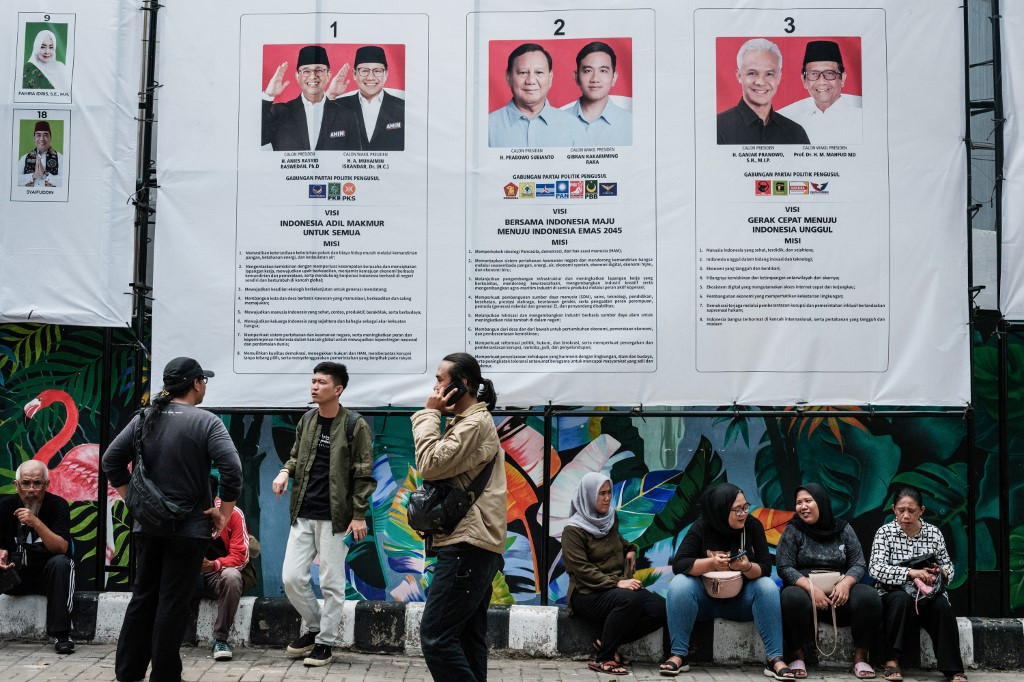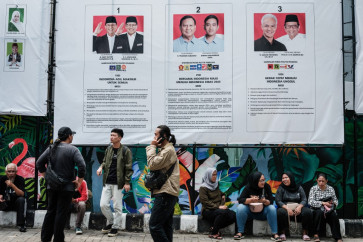Popular Reads
Top Results
Can't find what you're looking for?
View all search resultsPopular Reads
Top Results
Can't find what you're looking for?
View all search resultsThe downside of the ‘Philippinization’ of Indonesian politics
It comes as no surprise that, despite operating within a democratic framework, there is a tendency to romanticize the authoritarian past in both the Philippines and Indonesia.
Change text size
Gift Premium Articles
to Anyone

Andreas Ufen, a renowned expert in Southeast Asian politics, already described in 2006 that political parties in Indonesia were undergoing a process of “Philippinization”, marked by the rise of presidentialized parties exhibiting growing intra-party authoritarianism, the influence of vote-buying, a lack of meaningful political platforms, weak party loyalty and the emergence of new local elites.
Little did he know that this concept would peak in less than two decades, as seen with the pairing of Prabowo Subianto and Gibran Rakabuming Raka. They are out to mirror the success of the Uniteam Marcos Jr-Duterte tandem in the Philippines, which achieved one of the most lopsided victories in modern Philippine electoral history.
For those unfamiliar with Indonesia, gaining insight into the political developments requires a glimpse into its history.
Prior to Soeharto's authoritarian rule in 1966, the political landscape was characterized by the aliran (stream) system, where party dynamics revolved around loyalties and ideologies. This is evident in the distinct political streams of nationalists like the Indonesian Nationalist Party (PNI), Islamists, like Masyumi and the United Development Party (PPP) and Communists, the Indonesian Communist Party (PKI).
The aliran system, characterized by diverse political streams, was suppressed under the Soeharto regime, resulting in a centralization of power within the government and military. Dissenters, including not only communists but also Islamists and nationalists, were eliminated, as occurred during the anticommunist purge. In short, the Soeharto regime aimed to create a more controlled political landscape, sidelining the varied political ideologies and loyalties inherent in the aliran system.
The fall of Soeharto and the power transfer to Habibie in 1998 marked a new era characterized by reforms that drove democratization and the rise of new local elites. In comparison to the Philippines, which had its first free elections post-Marcos in 1987, Indonesia only held its first direct elections in 2004. Before the victory of Susilo Bambang Yudhoyono (SBY) in 2004, Abdurrahman “Gus Dur” Wahid and Megawati Soekarnoputri were elected president by the People’s Consultative Assembly.

After Indonesia's inaugural direct presidential elections in 2004, there has been a decline in the influence of the aliran streams, making Indonesian politics akin to the party system in the Philippines. Despite the emergence of numerous nationalist and Islamist parties, they often function as electoral vehicles, with politicians serving as brokers for powerful local elites. This has led to a decreasing sense of party loyalty and a lack of meaningful political platforms.


















